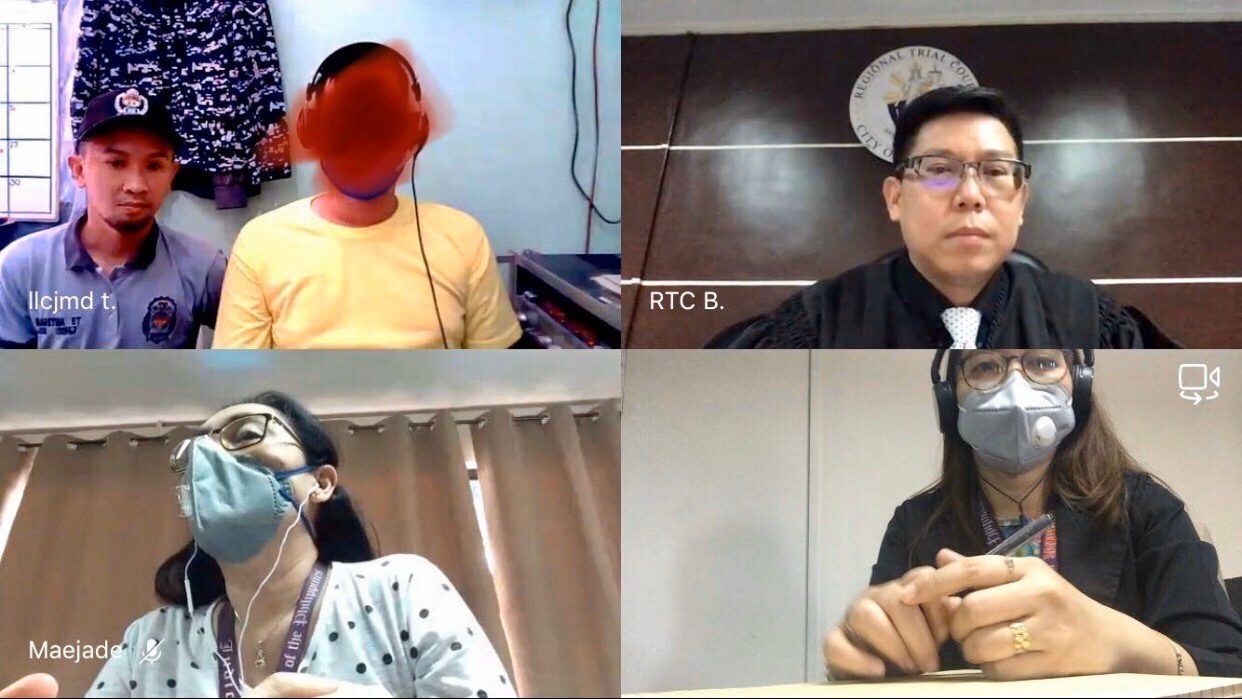SUMMARY
This is AI generated summarization, which may have errors. For context, always refer to the full article.

MANILA, Philippines – The Supreme Court has authorized all pilot courts nationwide to hold virtual hearings for all matters, regardless of the type of pleading and stage of trial.
“All courts initially authorized to hear through videoconferencing only urgent matters in criminal cases involving Persons Deprived of Liberty (PDLs) are now herein authorized to hear through videoconferencing all matters pending before them, in both criminal and civil cases, whether newly-filed or pending, and regardless of the stage of trial,” said Chief Justice Diosdado Peralta in Administrative Circular No. 39-2020 issued on Thursday, May 14.
Peralta said all courts in areas under modified Enhanced Community Quarantine (MECQ), meaning Metro Manila, Cebu City, and Laguna, shall remain physically closed until May 31.
All courts in Metro Manila, and 70 others nationwide are pilot courts for virtual hearings. These include 3 courts in Laguna and Cebu City. (READ: ‘The digital court is not so far away’)
“The videoconferencing hearings in both criminal and civil cases shall be upon joint motion of the parties, or upon orders of the court, which shall schedule the said videoconferencing hearings,” Peralta said.
Here are the authorized courts to do virtual hearings for all matters, regardless of stage of trial: pic.twitter.com/zChwwkWoBv
The Supreme Court has its own Philippine Judiciary 365 platform, which has video conference and email features. Judges, lawyers, litigants and jail officers should not use any other platform aside from the 365.
This is in effect while there is a state of public health emergency, or until the Supreme Court lifts it.
In-court hearings
For courts not authorized to do virtual hearings, in-court hearings are allowed provided that hygiene protocols like wearing of masks and physical distancing are followed.
But in-court hearings are still limited to “urgent matters and other concerns to expedite the proceedings, both in criminal and civil cases.”
The deadline for all pleadings set to be filed on or before May 31 has been extended to another 30 calendar days counted from June 1, said the Supreme Court.
“But pleadings and other court submissions may still be filed by the parties within the reglementary period on or before 31 May 2020 through electronic means, if preferred and able,” said the Supreme Court.
Night courts and Saturday courts in MECQ areas are still suspended.
Civil weddings are also now allowed under ECQ and General Community Quarantine (GCQ) provided the attendees will not exceed 5 people, as that is the limit for gatherings set by the national government.
These are adjustments for the Supreme Court in a pandemic policy that had seen 48,132 people arrested on the spot for violating quarantine rules, according to police data as of May 11.
Prisoners
Of that number, 36,000 have been charged in court; 12,132 are undergoing prosecution, and 2,235 remain in jail.
Prisoners set for release have also been affected, but the Supreme Court said detention facilities nationwide have released 9,731 prisoners from March 17 to April 29.
There was a discrepancy, however, with Malacañang because it reported to Congress data from the Bureau of Jail Management and Penology (BJMP) that only 4,188 prisoners were released from March 17 to April 30.
Supreme Court Spokesperson Brian Keith Hosaka said the disparity, or more than half of the SC data, were individuals who were detained in non-BJMP facilities or police and other law enforcement stations.
A part of that number were people arrested during the lockdown.
“There were PDLs arrested during this period who were not turned over or committed to the BJMP facilities anymore and remained in the custody of law enforcement agencies as requested by BJMP to the Police and the Courts,” said Hosaka.
“They can also be PDLs already in the custody of the Police and other law enforcement agencies prior to the BJMP lockdown, and remained so until eventually released by the courts during the said period of March 17 to Apr 29,” added Hosaka.
A petition for a humanitarian release of low-risk and vulnerable prisoners is still pending before the Supreme Court. – Rappler.com
Add a comment
How does this make you feel?
There are no comments yet. Add your comment to start the conversation.